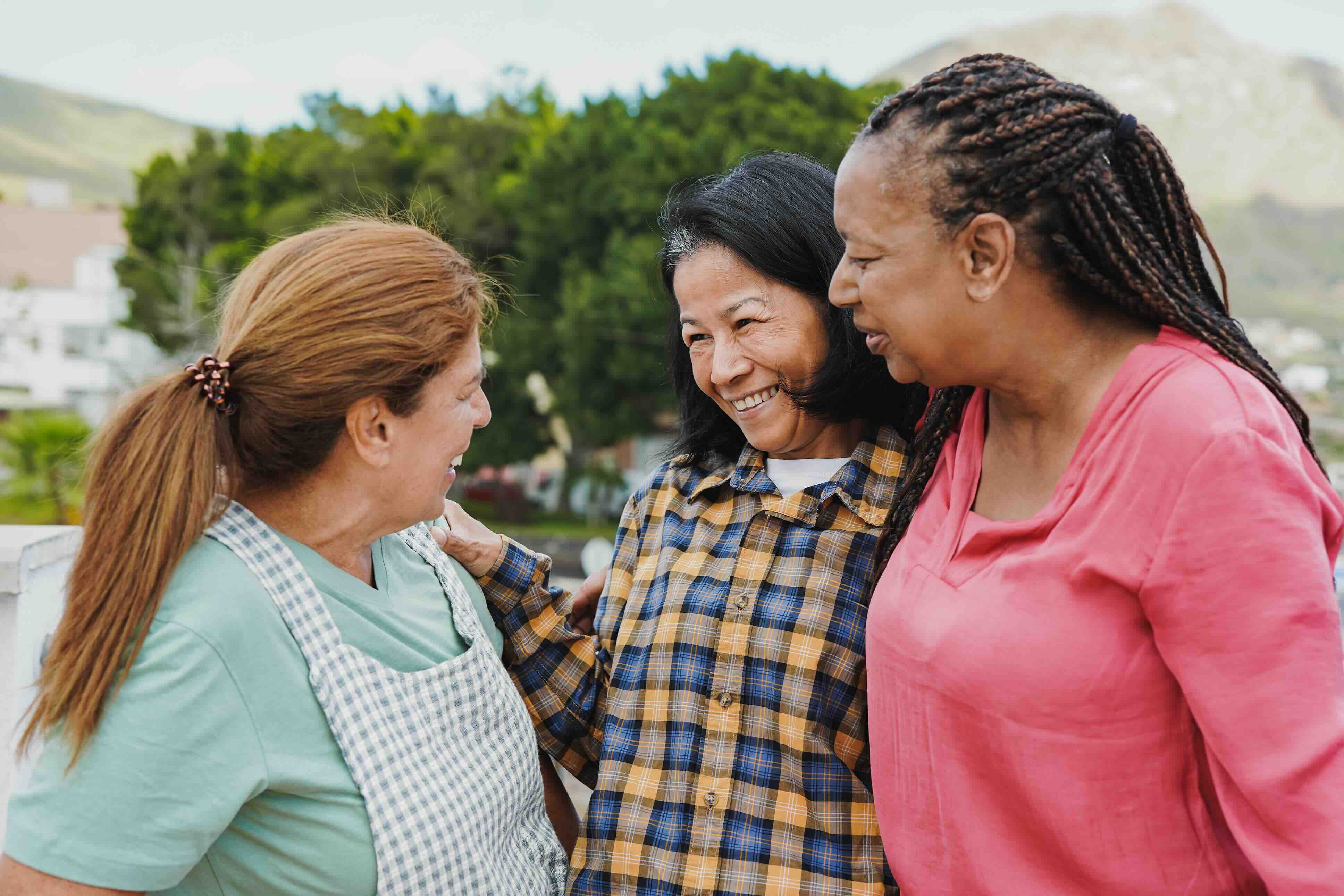Caregiver Support Groups: Where to Find Real Help Online and In Your Community

Caring for someone you love can be deeply meaningful and unbelievably draining at the same time. Many caregivers carry the mental load alone, juggling schedules, medications, financial decisions, and their own emotions in silence. Caregiver support groups can change this and make a life-changing difference.
These spaces give you room to share what’s really going on, listen to people who understand, and learn practical strategies that make daily life less overwhelming. If you’re caring for a parent, partner, child, friend, or neighbor, there are support groups for caregivers built for your situation; you just have to know where to look.
Why Caregiver Support Groups Matter
Caregiving can feel isolating, even when you’re surrounded by people. Friends might not fully understand why you’re exhausted. Coworkers may not see the invisible work you do before and after your job. The right caregiver support groups create a community where you don’t have to explain or minimize what you’re going through.
Emotionally, these groups offer validation, empathy, and a place to talk about guilt, grief, resentment, and love without judgment. Hearing "me too" from someone who has walked a similar path can be surprisingly healing. You may find that simply being seen and heard lightens your load.
Practically, support groups for caregivers are a goldmine of real-world tips. Members share what’s worked for them; everything from organizing medications and navigating insurance to communicating with doctors and setting boundaries with family. Instead of figuring everything out alone, you get access to collective experience.
There’s also flexibility. Some caregiver support groups meet in person at hospitals, community centers, or churches. Others are entirely online through forums, video calls, or social platforms. Many are general, while others focus on specific diagnoses or relationships. That means you can usually find something that fits your schedule, comfort level, and caregiving situation.
National Organizations Offering Caregiver Support Groups
If you’re not sure where to start, national organizations are often the easiest first step. Many of them host their own caregiver support groups or maintain directories that help you find options in your area.
These organizations are usually well-established, with trained facilitators and vetted resources. That can help you feel more comfortable joining a group for the first time. They also tend to offer extra tools (webinars, guides, hotlines, and education) alongside their support groups for caregivers.
AARP Caregiver Support Group Resources
AARP offers a wide range of caregiver resources, including education, online communities, and links that can point you toward caregiver support groups near you based on your location. Their materials often cover financial planning, workplace issues, and long-term care decisions, which can be especially helpful if you’re balancing caregiving with a career.
You may also find virtual events, workshops, and online gatherings where caregivers can ask questions and connect in real time. While not all of these are traditional caregiver support groups, they can still give you a sense of community and support.
Alzheimer’s and Dementia Caregiver Groups
For caregivers supporting someone with Alzheimer’s or another form of dementia, condition-specific groups can be life-saving. These caregiver support groups understand memory loss, behavior changes, wandering, and the emotional strain of slowly losing parts of the person you love.
Organizations focused on dementia often host both in-person and virtual support groups for caregivers, including options for adult children, spouses, and long-distance caregivers. You’ll find space to grieve, vent, and learn practical strategies from people who truly get it. Some valuable options include:
Cancer Caregiver Support Networks
Cancer brings a unique set of stressors: treatment schedules, side effects, fear of recurrence, and the emotional rollercoaster of scans and waiting for results. Cancer-focused caregiver support groups give you a place to process the uncertainty and talk openly about what it’s like to walk alongside someone in treatment.
Many cancer organizations and hospitals offer support groups for caregivers connected to oncology clinics or survivorship programs. Some groups are general, while others focus on specific cancers or stages of illness. This can help you feel less alone at every phase, from diagnosis through treatment and beyond. Check out these resources below:
Mental Health and Behavioral Health Caregiver Groups
Caring for someone with a mental health condition or substance use disorder can feel very different from caring for someone with a visible illness. Stigma, secrecy, and misunderstanding are common. Mental health-focused caregiver support groups offer a safer place to talk about these challenges.
In these communities, caregivers can share experiences with hospitalizations, crisis plans, medications, and boundaries. You’ll likely meet people who’ve navigated similar systems and emotions and can offer grounded, nonjudgmental support. Try starting here:
Military and Veteran Caregiver Programs
If you’re caring for a service member or veteran, there are unique resources designed for you. Military and veteran-focused caregiver support groups understand PTSD, physical injuries, moral injury, and the complicated emotions that can come with military service and its aftermath.
These programs often combine peer support with case management, education, and respite options. They can connect you not only with support groups for caregivers, but also with benefits, advocacy, and financial assistance tailored to military families.
Online Caregiver Support Groups You Can Join From Anywhere
Sometimes, leaving the house for a meeting just isn’t realistic. You may not have transportation, respite care, or the energy to attend a group in person. The good news is that many online caregiver support groups fit into real-life caregiving schedules.
Online spaces can be especially helpful if you’re looking for very specific experiences, such as young adult caregivers, sandwich-generation caregivers, caregivers of people with rare diseases, or LGBTQ+ caregivers. With a few clicks, you can find people who understand your particular situation.
Social Media Communities and Forums
Platforms like Facebook, Reddit, and other online forums have countless support groups for caregivers organized by diagnosis, relationship, location, or even identity (like working caregivers or male caregivers). These groups are often active 24/7, so you can scroll, read, or share whenever you have a quiet moment.
When you search for caregiver support groups near me, you may also find local organizations that maintain a social media community alongside in-person meetings. This can give you both virtual and face-to-face ways to stay connected. Some popular options include:
- Modern Caregiver Support Group on Facebook
- Family Caregivers Support Group on Facebook
- Support for Caregivers on Reddit
- Family Caregiver Alliance large support group network
Virtual Meetups and Video-Based Groups
Some organizations host live virtual caregiver support groups over Zoom or other video platforms. These sessions are often led by a facilitator who helps keep the conversation respectful and focused. Because they’re scheduled, you can block off time on your calendar and treat it as a protected space for yourself.
These groups can feel more personal than text-only communities, while still offering the flexibility of logging in from home. Many caregivers find that seeing faces and hearing voices deepens the sense of connection. Learn more:

Local Caregiver Support Groups Near You
If you prefer face-to-face connection, there are many ways to find caregiver support groups near me in your own community. These groups let you sit in the same room with people who understand the pressures you’re under, and sometimes those relationships grow into friendships outside the group.
Local groups can be especially helpful if you’re looking for nearby resources like respite care, home health providers, adult day programs, or local advocacy organizations. Members often share recommendations and connections you won’t find in a quick online search. Check out:
Community Centers and Senior Centers
Community centers and senior centers often host wellness classes, educational workshops, and caregiver support groups. These groups might be listed on bulletin boards, websites, or seasonal program brochures, so it’s worth checking multiple places.
If you’re searching for caregiver support groups near me, don’t underestimate these local hubs. Staff members are usually well connected to other local services and can point you toward additional support if their offerings don’t quite fit your needs. Visit your local senior center, Area Agencies on Aging and health department websites for more information.
Libraries, Faith Communities, and Nonprofits
Public libraries, faith communities, and local nonprofits are also common hosts for caregiver support groups. Some may run ongoing groups, while others organize short-term series focused on certain themes like grief, navigating the healthcare system, or caregiver stress.
Even if a location doesn’t advertise itself as a caregiver resource, it’s worth asking whether they know of any support groups for caregivers in your area. Often, information travels by word of mouth more than it does online. Inquire with your local library and faith centers to learn more.
How to Choose the Right Caregiver Support Group for You
Not every group will feel like a good fit, and that’s okay. It can take a little time to find the caregiver support groups that truly match your needs, personality, and schedule.
Start by thinking about your comfort level. Do you prefer a smaller group where everyone gets a chance to speak, or a larger group where you can listen quietly at first? Are you more comfortable in a virtual gathering, or does an in-person connection feel more supportive to you?
You can also consider who leads the group. Some support groups for caregivers are peer-led, meaning caregivers themselves run them. Others are facilitated by social workers, counselors, chaplains, or healthcare professionals. Both can be valuable; it just depends on the kind of space you’re looking for.
Finally, think about your specific situation. There are caregiver support groups for young caregivers, spouse caregivers, parents, long-distance caregivers, and more. You’re allowed to be selective. You deserve a space where you feel seen and safe.
What to Expect in a Caregiver Support Group
Walking into your first meeting, or logging into your first virtual session, can feel intimidating. Knowing what to expect from caregiver support groups can ease some of that anxiety.
Most groups start with a brief introduction to the purpose and ground rules. These usually include confidentiality, mutual respect, and giving everyone a chance to share. You may be invited to introduce yourself, but you typically won’t be forced to speak if you’d rather just listen at first.
From there, the conversation might focus on a specific theme, like managing burnout, navigating healthcare appointments, or dealing with family conflict. In many caregiver support groups, members share recent challenges and wins, and others offer empathy or suggestions.
It’s important to remember that a support group is not the same as therapy. Still, the emotional support, shared experience, and practical ideas you gain can be deeply therapeutic. Over time, many caregivers find that these groups become a trusted part of their coping toolkit.
Additional Resources Beyond Caregiver Support Groups
Caregiver support groups are powerful, but they’re just one piece of the support puzzle. Many caregivers also benefit from one-on-one counseling, respite services, and practical assistance.
Helplines and hotlines can give you immediate guidance during a crisis or a tough day. Local aging services, disability organizations, and disease-specific nonprofits often provide case management, education, and referrals that complement the emotional support you get from caregiver support groups.
You might also explore respite care, where trained professionals or volunteers temporarily step in so you can rest, run errands, or simply have time to yourself. Combining respite with regular caregiver support groups can help you protect your energy over the long term.
How Caily Helps Caregivers Stay Connected and Supported
While Caily itself isn't a traditional caregiver support group, it’s designed to make caregiving less isolating and more organized. Think of it as a digital hub that keeps your entire care circle on the same page.
Within Caily, you can create a circle that includes family, friends, and professionals. Together, you can share schedules, delegate tasks, track important information, and keep all care-related communication in one place. Instead of one person silently carrying everything, responsibilities can be shared more fairly.
That kind of coordination doesn’t replace support groups for caregivers. Still, it can make your day-to-day life more manageable so you have the capacity to show up for yourself, whether that’s attending a group, taking a short walk, or simply resting.
Frequently Asked Questions About Caregiver Support Groups
How do I find caregiver support groups near me?
You can start by asking a doctor or social worker, or by searching online for caregiver support groups near me in your area.
Are online caregiver support groups as helpful as in-person ones?
Yes, online groups can be just as supportive and offer flexibility for caregivers who can’t attend in person. Some caregivers prefer online groups because they can join from home, while others like to mix online communities with local, in-person meetings.
What types of caregiver support groups are available?
There are general groups, condition-specific groups, and groups built around relationships or life stages, so you can choose what fits best.
Do caregiver support groups cost money?
Most groups are free, though some professionally led options may charge a small fee.
What if I’m nervous about sharing in a group?
You can simply listen at first; most caregiver support groups allow you to participate at your own pace.
Can I attend more than one caregiver support group?
Yes, many caregivers join multiple groups to get different kinds of support.
How do I know if a support group is a good fit?
A good group feels respectful, safe, and supportive—if it doesn’t, you’re free to try another.

Get Started Now
Enjoy full access to everything Caily offers, from medication tracking to shared schedules and daily check-ins. See how much easier caregiving can be when everything is coordinated in one place.
Start your free trial
